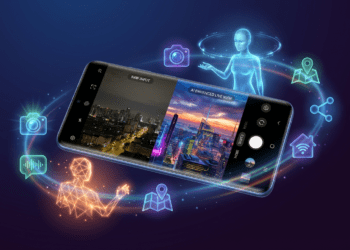The internet as we know it is about to change forever.
On July 9, 2025, Perplexity launched Comet, an AI-powered web browser that doesn’t just browse the web—it thinks, acts, and anticipates your needs. This isn’t another incremental update to the familiar point-and-click paradigm we’ve known for decades. This is a fundamental reimagining of what a browser can be.
But here’s the twist: while tech giants scramble to integrate AI features into their existing browsers, Comet was built from the ground up with artificial intelligence as its core DNA. The result? A browsing experience so radically different that it might just make traditional browsers feel as antiquated as dial-up internet.

The Revolutionary Architecture: More Than Just Another Browser
Comet’s foundation rests on Chromium—the same open-source engine powering Google Chrome—but that’s where the similarities end. According to TechCrunch’s hands-on review, Comet transforms the familiar browser interface into something that feels more like conversing with an intelligent assistant than navigating static web pages.
The browser’s most striking feature is its AI assistant, which lives in a sidebar and can see everything you’re looking at. Imagine highlighting text on any webpage and instantly receiving contextual explanations, or asking your browser to “find that climate data article I read yesterday” and having it actually understand and locate it. This isn’t science fiction—it’s happening right now.
The Agentic Revolution
What sets Comet apart from competitors like Arc’s Dia browser or Opera’s Aria is its “agentic” capabilities. While other AI browsers focus on answering questions or summarizing content, Comet can actually perform actions on your behalf. Need to book a meeting? The AI can navigate websites, fill forms, and complete transactions autonomously.
This represents a seismic shift from passive browsing to active assistance. As SiliconAngle reports, Comet’s AI can “compare products, summarize content, book meetings,” transforming the browser from a simple navigation tool into a comprehensive digital assistant.
Privacy in the Age of AI: A Different Approach
In an era where data privacy concerns dominate headlines, Comet takes a refreshingly different approach. Unlike traditional browsers that feed user data into advertising algorithms, Perplexity has committed to storing user data locally and avoiding the use of personal browsing data for AI model training.
This privacy-first philosophy stands in stark contrast to the data-hungry models of competitors. While OpenAI’s upcoming browser explicitly aims to gather user data for ad targeting and AI improvement, Comet positions itself as the responsible alternative for privacy-conscious users.

The Permission Paradox
However, this privacy commitment comes with a caveat. To unlock Comet’s full potential—including email summarization and calendar integration—users must grant extensive permissions. TechCrunch’s testing revealed that enabling these features requires giving Comet access to view your screen, send emails, access contacts, and manage calendar events.
This creates an interesting paradox: to benefit from AI-powered assistance, users must trust the browser with unprecedented access to their digital lives. It’s a trade-off that highlights the complex relationship between convenience and privacy in the AI age.
The Competitive Landscape: A Browser War Unlike Any Other
The timing of Comet’s launch couldn’t be more strategic. The browser market, long dominated by Google Chrome’s 67% market share, is experiencing unprecedented disruption. Multiple AI-powered browsers are emerging simultaneously, each promising to revolutionize how we interact with the web.
The Giants Awaken
Google isn’t standing idle. Chrome has already begun integrating AI features, and Microsoft’s Edge leverages Copilot for enhanced functionality. But these feel like AI features bolted onto existing browsers rather than browsers designed around AI from the ground up.
The real game-changer looms on the horizon: OpenAI’s browser, expected to launch within weeks, could bring ChatGPT’s 400 million weekly users into direct competition with Chrome. This creates a fascinating three-way battle between established tech giants, AI-first startups, and privacy-focused alternatives.
The Startup Advantage
Smaller players like The Browser Company (Arc) and Brave have been experimenting with AI integration for months, but none have achieved Comet’s level of agentic functionality. As reported by 9to5Mac, Comet’s ability to perform autonomous tasks sets it apart from browsers that merely chat about content.
User Experience: When Browsing Becomes Conversation
The most profound change Comet introduces isn’t technological—it’s behavioral. Traditional browsing follows a predictable pattern: type URL, click links, navigate pages. Comet transforms this into a conversational flow where intent matters more than navigation.
Real-World Performance
TechCrunch’s extensive testing revealed both the promise and limitations of this approach. Simple tasks—like summarizing articles or answering questions about webpage content—work remarkably well. The AI assistant can instantly provide context without requiring users to copy-paste text or switch applications.
However, complex tasks expose current limitations. When asked to book airport parking with specific criteria, the AI made critical errors, entering wrong dates and failing to complete the transaction correctly. These failures highlight a crucial reality: while AI can handle routine tasks effectively, complex workflows still require human oversight.
The Learning Curve
For users accustomed to traditional browsing, Comet represents a significant paradigm shift. Instead of clicking through menus and forms, users must learn to communicate their intent through natural language. This conversational approach can feel liberating for some and overwhelming for others.
The browser’s memory capabilities add another layer of complexity and convenience. Comet can recall previous browsing sessions and maintain context across tabs, enabling queries like “compare this product with the one I looked at yesterday.” This persistent context could revolutionize research workflows but requires users to trust the browser with comprehensive activity tracking.
Technical Innovation: The Engine Behind the Magic
Comet’s technical architecture represents a sophisticated balance between local processing and cloud intelligence. According to detailed analysis, the browser employs a hybrid approach, running lightweight AI models locally for simple tasks while leveraging cloud servers for complex operations.
Performance Considerations
This hybrid model creates interesting performance trade-offs. Local processing enables instant responses for basic queries and works even with poor internet connectivity. However, the most impressive features—like autonomous task execution and complex reasoning—require cloud connectivity and can introduce latency.
Early testing suggests Comet uses approximately 20-25% more power than Chrome during intensive AI tasks, potentially impacting battery life on mobile devices. This overhead represents the cost of intelligence: more capable browsers require more resources.
Developer Ecosystem
For web developers, Comet presents both opportunities and challenges. Its Chromium foundation ensures compatibility with existing websites and Chrome extensions. However, the AI’s ability to interact with web pages autonomously introduces new considerations for site design and user experience.
Developers may need to optimize their sites for AI agents rather than human users, ensuring that automated interactions work smoothly and that important information is easily accessible to AI systems. This could drive adoption of structured data and API-first architectures.
Market Dynamics: The Economics of AI Browsing
Comet’s business model reflects broader trends in AI monetization. Unlike Chrome, which generates revenue through advertising and data collection, Comet is available exclusively to Perplexity Max subscribers at $200 per month. This premium pricing strategy targets power users and professionals willing to pay for advanced AI capabilities.
The Accessibility Challenge
The high subscription cost creates a significant barrier to adoption. While $200 monthly might be reasonable for businesses or AI enthusiasts, it places Comet out of reach for most consumers. This pricing strategy risks creating a two-tiered internet where advanced AI browsing becomes a luxury good.
However, this exclusivity might be intentional. By limiting initial access to paying subscribers and waitlist invitees, Perplexity can refine the technology with a smaller, more engaged user base before broader rollout.
Competitive Pressure
The premium pricing becomes more challenging as competitors emerge. OpenAI’s browser, backed by significant resources and an existing user base of 400 million ChatGPT users, could offer similar capabilities at lower cost or even free with advertising support.
Industry Implications: Reshaping the Web Ecosystem
Comet’s emergence signals broader changes in how we think about web interaction. If AI browsers become mainstream, the implications extend far beyond browser market share to fundamental questions about web architecture, content creation, and digital commerce.
The Content Creator Dilemma
AI browsers that summarize content without driving traffic to original sources create tension with content creators and publishers. If users can get article summaries without visiting websites, how do publishers monetize their content? This challenge has already sparked legal disputes between Perplexity and news organizations, highlighting the need for new models of content compensation.
SEO Evolution
Traditional search engine optimization may become less relevant as AI agents evaluate content directly rather than relying on search rankings. Businesses may need to optimize for AI comprehension rather than human readers, emphasizing structured data, clear APIs, and machine-readable content formats.
E-commerce Transformation
Comet’s ability to automate shopping tasks could revolutionize e-commerce. Instead of browsing product pages and comparing options manually, users might simply describe their needs and let the AI handle research, comparison, and even purchasing. This could compress the traditional sales funnel into a single conversation.
Looking Forward: The Future of Intelligent Browsing
As we stand at the threshold of the AI browsing era, several trends are becoming clear. First, the browser is evolving from a passive window to the web into an active participant in our digital lives. Second, privacy and intelligence are becoming key differentiators rather than speed and compatibility. Third, the line between browsing and computing is blurring as browsers become platforms for AI-powered productivity.
The Platform Play
Comet represents more than a browser—it’s a platform for AI-human collaboration. As Perplexity CEO Aravind Srinivas noted, the goal is to create “an operating system with which you can do almost everything.” This vision positions the browser as the primary interface for digital life, handling everything from research to communication to commerce.
Challenges Ahead
Several obstacles could impede Comet’s success. Technical challenges include improving AI reliability for complex tasks, optimizing performance, and ensuring security. Market challenges include competing with well-funded giants, achieving mainstream adoption despite premium pricing, and navigating regulatory scrutiny around AI and privacy.
The Broader Impact
Regardless of Comet’s individual success, its launch marks a pivotal moment in browser evolution. The combination of AI intelligence, privacy focus, and agentic capabilities sets new expectations for what browsers should do. Even if Comet doesn’t achieve dominant market share, its innovations will likely influence the entire industry.
Conclusion: A New Chapter in Web History
Comet AI Browser represents more than technological innovation—it embodies a fundamental shift in how we conceptualize the relationship between humans and the web. By transforming browsing from navigation to conversation, from passive consumption to active collaboration, Comet challenges assumptions that have defined web interaction for decades.
The browser’s success will depend on its ability to deliver on ambitious promises while addressing legitimate concerns about privacy, reliability, and accessibility. Early testing reveals both impressive capabilities and significant limitations, suggesting that while the future of AI browsing is promising, we’re still in the early stages of this transformation.
What’s certain is that the browser wars have entered a new phase. No longer fought over rendering speed or standards compliance, today’s battles center on intelligence, privacy, and the ability to understand and act on human intent. In this new landscape, traditional advantages matter less than the ability to reimagine what browsing can become.
As we navigate this transition, one thing becomes clear: the web of tomorrow will be more intelligent, more responsive, and more capable than anything we’ve experienced before. Whether Comet leads this transformation or simply catalyzes it, we’re witnessing the dawn of a new era in digital interaction—one where the browser doesn’t just connect us to information, but actively helps us make sense of it all.
The question isn’t whether AI will transform browsing, but how quickly we’ll adapt to a world where our browsers think alongside us. Comet has fired the opening shot in this revolution. The response from users, competitors, and the broader tech ecosystem will determine whether this marks the beginning of a new chapter in web history or simply an ambitious experiment in the ongoing evolution of digital tools.
The future of browsing is here. It’s intelligent, conversational, and surprisingly human. Welcome to the age of AI-powered web interaction.










Comments 1